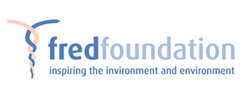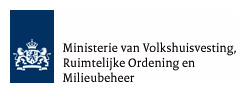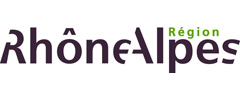From Brown to Green Economies
Discussion between the NGOs and the EU presidency, Andrzej Kraszewski, Minister of Environment of Poland, on key issues of the Environment for Europe process, Astana, Friday 23 September 2011
18.10.2011 |Sascha Gabizon

The session was opened by the co-chairs of the European Eco-Forum, Olga Ponisova, of the NGO Eco-Accord Russia, and Sascha Gabizon, of the NGO network WECF.
Olga Ponizova called on EU member states to support the Environment for Europe process also in the future, as such a cooperation between ministers of environment of the region is still very much needed, and that this is important also because of the active participation by civil society.
Sascha Gabizon referred to the “Green” Economy concept, and that it should help countries to promote and share new technologies which are not harmful for humans and the environment. “Often in the past we have believed that some technologies were very beneficial, when finally they turned out to be doing great damage, asbestos is an example. How can we avoid making the same mistake? Lets look at Shale-gas, a sector in which Poland has decided to invest. Shale-gas uses a lot of chemicals and water. A recent report by the EU shows that we do not know the environmental impact – and what we know from the US is very worrying”.
Sascha Gabizon asked the EU presidency what mechanisms is the EU putting in place to assure there is no environmental damage from technologies like Shale Gas extraction? She said her organisation believes that an Independent Technology Assessment and Monitoring is needed, before their widespread use – e.g. shale-gas, geo-engineering, nano, animal cloning. This assessment body should guarantee prior informed consent and rights of communities impacted by the financial flows, timely information, effective participation, and redress mechanisms.

Mr. Andrzej Kraszewski Polish Minister of Environment, responded to the 2 questions. He supported strengthening of the Environment for Europe process, and reflected on how important the process had been for countries like Poland. He also reflected on the difficult balance between energy security – and becoming less dependent on imports from other countries – and environmental risks from Shale Gas or nuclear industry.
Janis Brigaz of Latvia referred to the need that for EU countries, “roadmaps on green economy” should address not only resource efficiency, but should also address ‘sufficiency’ and ‘absolute caps’ on natural resources and emissions.
Kaisha Atakhanova, of the Kazakh NGO Eco-Forum, referred to the lessons of the Fukushima nuclear disaster, and to the deadly victims of the smaller nuclear accident the in the 2nd week of September in France, asking if the EU will finally make sure that nuclear power includes the full cost of all insurance, - it should not be limited as it is now – and for the full nuclear cycle, including the complete clean up of uranium mines and decommissioning of nuclear reactors after closure.
Svetlana Slesarenok, director of the Black Sea Women’s Club, explained how rural communities in her region are already strongly effected by extreme events like floods and draughts, probably due to climate change. She called on the EU to support development of capacity building for Climate Change adaptation strategies for local authorities. She said “it is not smart if we have wait until we agree on national level strategies, - which can take years - we urgently need to start with local strategies”.
Peter Leyel of Romania argued that in a limited world one cannot have unlimited economic and demographic growth. Already the carrying capacity of the planet has been exceeded, which can be seen from the collapsing fish stocks, desertification and diminishing forests. He quoted Einstein “we cannot solve a problem in the framework of the system which created it”. A major paradigm change is needed to become sustainable. He recommended that the EU will become a leader on real ecological Sustainable Development at a global level.

Mr. Andrzej Kraszewski Polish Minister of Environment, supported the view that we need to look at limits to growth, and contributed with the example of a laboratory tests.
Ina Coseru of the National Environment Center in Moldova, explained their frustrations with the EU Eastern Partnership, which is a very important policy mechanism launched by the EU which foresees a wide participation of various stakeholders including the NGOs from the 6 Eastern European countries and the EU countries. In Moldova, in September 2011 an “Eastern Partnership NGO Forum” was organized with the support of the EU. A national platform of the NGOs on the 4 main topics including environment, was presented. Problematic was however, that the environmental NGOs were not invited, and not informed about the process and that no clear position was presented on environment.
Eva Eiderstrom of the Swedish Green-Good Environmental product label, remarked that it is very good that the EU product and chemical legislation is setting standards word wide. She believes that the revision of the product safety directive should seize the opportunity to expand the directive to also encompass environmental "health" issues. The EU should ensure transparency, so that full content declaration of all products should be implemented.
Karine Danielyan of Armenia, recommended that a mandate of International Financial Institutions for Sustainable Development should be one of the outcomes of Rio+20, and she wonder if negotiations on this issue were already happening. She also wondered what the EU position was on upgrading UNEP and the CSD? Should there be an “environmental security council”?
The Polish presidency as well as the representative of the European Commission, Mr. Andrew Murphy, responded to the questions and comments, in a very interactive and interesting session.
Please find enclosed post-session documents of the Astana 'Environment for Europe' Ministerial Conference:
- Ministerial Declaration in English, French and Russian
- Summary of the Conference in English
- Report of the Conference in English
Related News
Getting to the Future We Want
4-7 November, Brussels: European Environmental Bureau’s (EEB) Annual Conference
12.11.2018
Human Biomonitoring for Europe
Vienna, 26 September: stakeholder forum
28.09.2018
A life without plastic, wouldn't it be fantastic?!
Interview with Charlotte Schueler of @PlastikfreiLeben, who lives a zerowaste life in Munich, Germany and shares her experiences to her 25.2 thousand followers on instagram & 37.2 thousand followers on facebook
14.09.2018
Calling for periods free from plastic & hazardous chemicals
Letter to Frédérique Ries, MEP, European Parliament on behalf of the #BreakFreeFromPlastics movement
04.09.2018





































